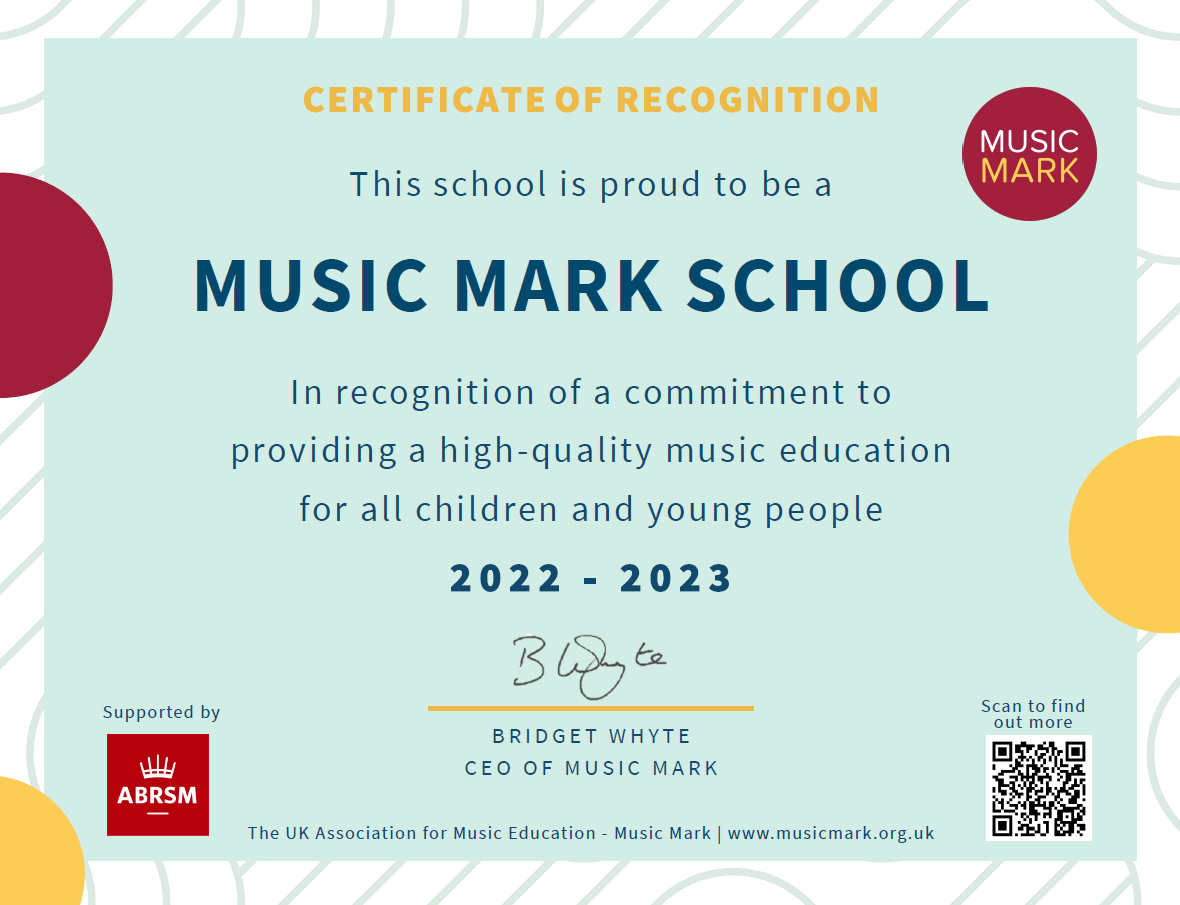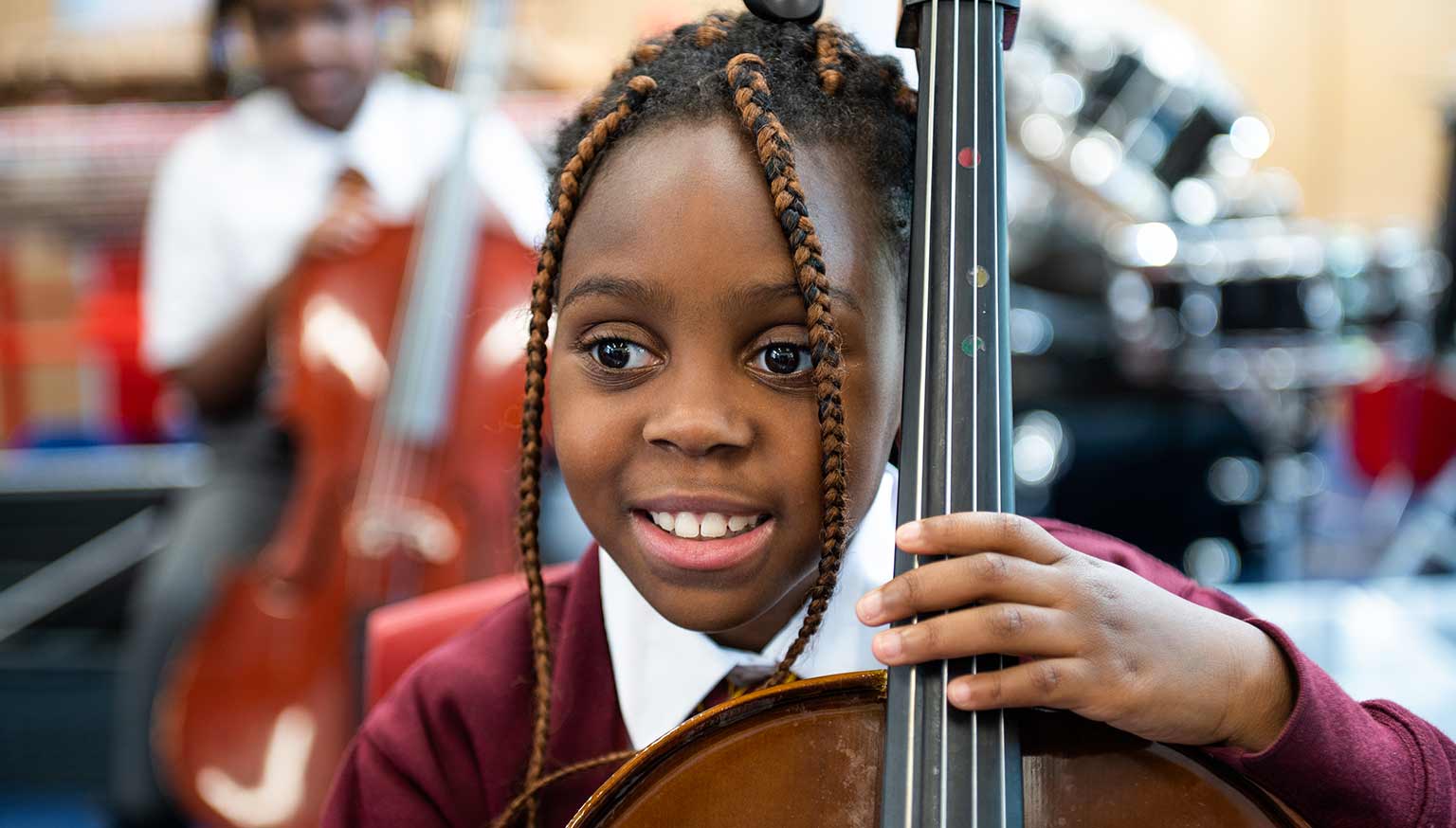
Subject Leader : Christian Powesland
Music has a longstanding tradition at Holy Trinity, and we are proud to be a school of musicians that learn and perform together. There are many ways to get involved with a musical pursuit at Holy Trinity, and we wanted to take this opportunity to highlight some of our key activities and events here.

Weekly Praise & Worship - this is a chance for the whole school to get together and sing. The songs we sing are based on our school values and scripture, and allow us to express ourselves through the gift of music.
Peripatetic lessons – we are so fortunate to have some of the best musicians around visit us each week to teach extra instrumental lessons. This year we are offering lessons in steel pan, violin, recorder, flute, clarinet, trumpet, trombone, cello, double-bass and keyboard. Please speak to the school office if you would like your child to sign up for lessons this term.
School ensembles and live performances – each child in the school has a chance to perform at some point in the year, whether it is for the Christmas Production, International Day, Summer Concert, class assemblies, Lambeth Music Festival, Easter Production, Music Club, school choir, pan band or orchestra… there is bound to be something for everyone!


The areas of Music that will be taught in each phase
Music will be taught in line with the National Curriculum 2014. The relevant KS1 and KS2 Programmes of Study will be covered by each year group. These are:
Key Stage 1
Use their voices expressively and creatively by singing songs and speaking chants and rhymes
- Play tuned and untuned instruments musically
- Listen with concentration and understanding to a range of high-quality live and recorded music
- Experiment with, create, select and combine sounds using the interrelated dimensions of music
- Learn Solfa hand signs to distinguish pitches
- Sing and play on percussive instruments together as an ensemble
- To hear and recognise instruments and the families they belong to
- To lead and conduct a class, both through a prepared musical piece and a piece of music they are improvising
- To sight read rhythmic notation
Key Stage 2
- Play and perform in solo and ensemble contexts, using their voices and playing musical instruments with increasing accuracy, fluency, control and expression
- Improvise and compose music for a range of purposes using the interrelated dimensions of music
- Listen with attention to detail and recall sounds with increasing aural memory
- Use and understand staff and other musical notations
- Appreciate and understand a wide range of high-quality live and recorded music drawn from different traditions and from great composers and musicians
- Develop an understanding of the history of music
- Play, perform as a wind band within the lessons, these will involve solos and playing as an ensemble, they will learn to follow a conductor and will themselves learn to conduct
- Children will improvise and compose using the interrelated dimensions of music on the instruments they will be playing all year round showing accuracy, fluency, control and expression
- Children will learn music phrases and understand form with both musical and no prompts while playing their instruments
- Children will be able to notate music
- Children will perform music to a high standard as an ensemble and individually from a range of styles and cultures
- Children will be given a background to the music they are playing and listening to.

Music for all!
All pupils will be given the opportunity to get involved in Music taking into account ability levels and support required. All lessons and activities will be differentiated carefully to ensure musical engagement, challenge, progress and a sense of achievement by all. We endeavour to meet the needs of all children including gifted and talented through:
- Planning and suitability of task
- Support required
- Use of appropriate resources
- Monitoring children’s progress
- Monitoring delivery of curriculum
Additional information
Throughout the school year, parents will be invited into the school to listen to the children perform. This will include end of term assemblies and performances. This helps to develop school links with parents as well as celebrate the musical talents of our children to the wider community.
Music workshops, educational visits and inter-school singing festivals are also timetabled throughout the year.
